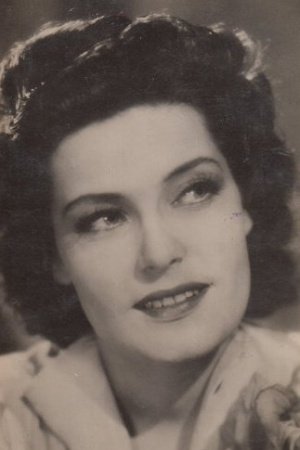Katalin Karády (1910-1990)
Alias:
Kanczler Katalin
Karady Katalin
Karádi Katalin
Karády Katalin
Katalin Kanczler
Katalin Karady
Katalin Karádi
Birthplace:
Budapest, Hungary
Born:
December 8, 1910
Died:
February 8, 1990
Katalin Karády (December 8, 1910, Budapest - February 8, 1990, New York) was a Hungarian actress and singer. A leading actress in Hungarian movies made between 1939–1945, she is best known outside Hungary as an awardee of the Righteous among the Nations honorific for rescuing a number of Hungarian Jews. She started acting in 1936, taking classes from Ernő Tarnay, and Artúr Bárdos. After gaining the attention of journalist Zoltán Egyed in a bar in Buda (who also proposed the name Karády) she was introduced to Ilona Aczél, a former actress, in whose acting school she learned the basics of the profession in the following three years, including singing. Karády's first performance was at the end of the 30s, in the Joób Dániel theatre. Between 1931 and 1941, she appeared in the Pesti and Vígszínház theatre in various roles. Her first movie role, Halálos Tavasz (Deadly Spring) gave her instant fame as a diva and sex-symbol, supported by her unusual, humming voice, and "femme fatale" character. In the next nine years, she appeared in 20 movies. Zoltán Egyed became her manager, and successfully created a Hollywood-like image around her, as a result, thousands of fans tried to mimic her clothing, hairstyle and behavior throughout the country. Karády's personal life was a constant topic of gossip, conflicting rumors came and gone about she being a man-eater, or lesbian. The theories were stirred up even more as she had intimate relationship with Regent Miklós Horthy's chief of secret service, István Ujszászy, who also proposed her, and bought her a villa. The 2001 film Hamvadó Cigarettavég by Péter Bacsó is dedicated to her memory. In 2004, for her courageous acts during World War II, she received the posthumous Righteous medal from the Yad Vashem Institute. Description above from the Wikipedia article Katalin Karády, licensed under CC-BY-SA, full list of contributors on Wikipedia.






